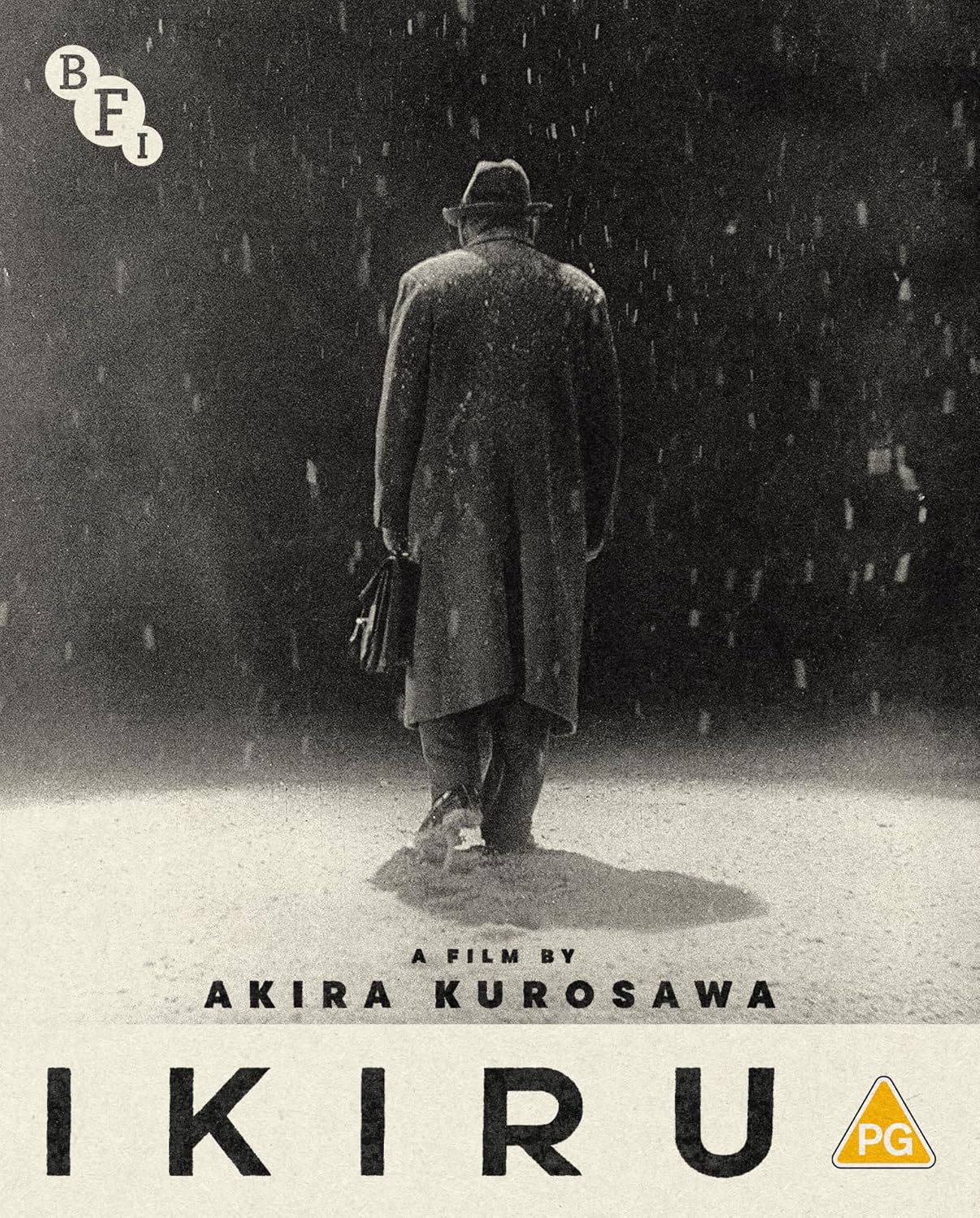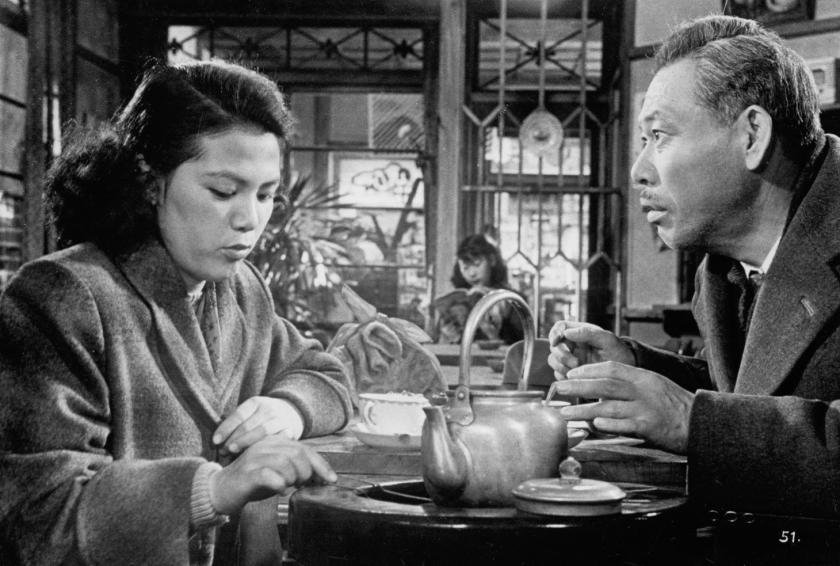Akira Kurosawa’s Ikiru (To Live) begins with an X-ray photo of the central character’s cancer-ridden stomach, a man described by the narrator (an uncredited Kurosawa) as someone “drifting through life… we can’t say that he is really alive at all…”.
It’s an audacious opening, and what promises to be a small-scale personal drama soon expands and takes on epic dimensions. Kurosawa stalwart Takashi Shimura is perfectly cast as Kanji Watanabe, a low-ranking civil servant in a Tokyo town hall who’s spent 30 years "drifting through life" surrounded by colleagues who specialise in passing the buck. In this case, it’s a group of local mothers pushing for officials to repair an open sewer in their bomb-ravaged Tokyo suburb and build a children’s playground on the site. They’re repeatedly fobbed off, sent to other departments who behave in similarly dismissive fashion. Vertiginous dusty piles of untouched paperwork surround Watanabe and his team and there’s the sense that little in this fractured post-war society (Ikiru was released in 1952) functions as it should. Even the doctors who scrutinise Watanabe’s X-ray are evasive, and it’s a fellow patient in the hospital waiting room who confirms that he must have cancer.
 Watanabe doesn’t share the news with those closest to him, not even with his materialistic married son who’s hoping to build a house with inheritance money. Kurosawa tempts us to imagine how we’d behave if we were in the same situation. In Watanabe’s instance, it’s to bunk off work and embark on a hedonistic spree with a pulp novelist he meets, taking in bars, dance halls and strip clubs. Shimura’s hunched posture, mumbling speech and wide, expressive eyes brilliantly convey Watanabe’s discomfort, especially during a painfully claustrophobic sequence where he and his companion share a taxi with two girls they’ve picked up. A day later, Watanabe encounters Miki Odagiri’s Toyo, a vivacious young colleague who needs him to sign off her resignation letter. Their relationship becomes more fractious until a tense, brilliantly choreographed final meeting between them prompts Watanabe to spend his final months doing something which he considers worthwhile. And then, just over halfway through the film, we learn that Watanabe has died.
Watanabe doesn’t share the news with those closest to him, not even with his materialistic married son who’s hoping to build a house with inheritance money. Kurosawa tempts us to imagine how we’d behave if we were in the same situation. In Watanabe’s instance, it’s to bunk off work and embark on a hedonistic spree with a pulp novelist he meets, taking in bars, dance halls and strip clubs. Shimura’s hunched posture, mumbling speech and wide, expressive eyes brilliantly convey Watanabe’s discomfort, especially during a painfully claustrophobic sequence where he and his companion share a taxi with two girls they’ve picked up. A day later, Watanabe encounters Miki Odagiri’s Toyo, a vivacious young colleague who needs him to sign off her resignation letter. Their relationship becomes more fractious until a tense, brilliantly choreographed final meeting between them prompts Watanabe to spend his final months doing something which he considers worthwhile. And then, just over halfway through the film, we learn that Watanabe has died.
The final act, set during the wake, is occasionally excruciating, particularly when oleaginous senior colleagues claim credit for Watanabe’s deeds. Kurosawa lets us piece together what actually took place through flashbacks, and an uplifting coda is undermined by a glimpse of Watanabe’s former colleagues carrying on as if nothing’s changed. Comparing Ikiru with last year’s Kazuo Ishiguro-scripted remake is inevitable; Living, starring Bill Nighy, is softer-edged and less subtle, director Oliver Hermanus literally recreating some of Kurosawa’s shots. Even Toyo’s wind-up rabbit has a cameo. The results are enjoyable, with an affecting lead performance, but you miss the original film’s bite. Ikiru is a masterpiece, a film with the power to make you take stock of your life so far and wonder how you’ll be remembered.
This 4k reissue comes with a bonus disc of extras, including a 2002 Japanese documentary about the making of Ikiru and a succinct introduction by Alex Cox. A 1972 episode of the BBC’s Man Alive series looks at a grassroots campaign to build an adventure playground in Islington and there’s an occasionally hilarious Central Office of Information short called The People People. This paints a Civil Service career as one full of colour and excitement (“there are over 200 computers in the Civil Service!”), as observed by a trendy photographer who’s equal parts David Hemmings and Austin Powers.















Add comment